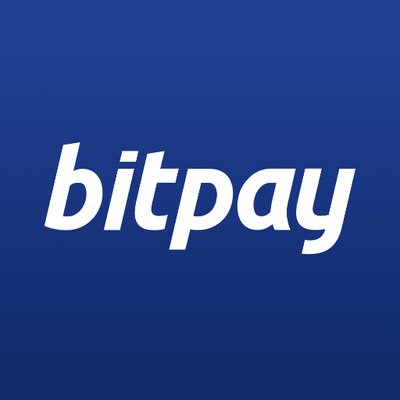BitPay Wallet vs Copay Bitcoin Wallet Comparison
| Company |
|
|
| User rating |
User rating
3.7 / 5
6 user review
|
User rating
3 / 5
1 user review
|
| Cryptogeek rating |
Cryptogeek rating
4 / 5
|
Cryptogeek rating
4.2 / 5
|
| Trust Score
How it works
|
Trust Score
4.31 / 5
|
Trust Score
2.86 / 5
|
About
|
The BitPay open-source Wallet is one of the products of the BitPay gateway that powers crypto payments for enterprises. BitPay was established in 2011. The BitPay wallet allows buying and selling cryptos.
|
Copay is an Hierarchical Deterministic wallet. This means that funds in the wallet can be restored using old backups, diminishing the risks of losing funds. The extra security of using different addresses for each bitcoin transaction is also a positive security feature alongside multisignature capabilities. Copay allows users to check prices in over 150 currencies.
|
Founding Date
Country
Languages
|
English, French, Spanish
|
No data
|
Wallet type
Storage type
Private keys
Available coins
|
8
- Bitcoin (BTC), Dogecoin (DOGE), USD Coin (USDC), Bitcoin Cash (BCH), Ethereum (ETH), Litecoin (LTC), Binance USD (BUSD), Paxos Standard (PAX)
|
0
|
Security
Anonymity
Ease of use
Has attached card
Has trading facilities
Has vouchers and offers
Features
|
No data
|
Hierarchical Deterministic, Open Source, Multi-Signature
|
| About |
The BitPay open-source Wallet is one of the products of the BitPay gateway that powers crypto payments for enterprises. BitPay was established in 2011. The BitPay wallet allows buying and selling cryptos.
|
Copay is an Hierarchical Deterministic wallet. This means that funds in the wallet can be restored using old backups, diminishing the risks of losing funds. The extra security of using different addresses for each bitcoin transaction is also a positive security feature alongside multisignature capabilities. Copay allows users to check prices in over 150 currencies.
|
| Founding Date |
Founding Date
2010
|
Founding Date
No data
|
| Country |
Country
International
|
Country
No data
|
| Languages |
Languages
English, French, Spanish
|
Languages
No data
|
| Wallet type |
Wallet type
Software wallet
|
Wallet type
No data
|
| Storage type |
Storage type
Hot wallet
|
Storage type
No data
|
| Private keys |
Private keys
Available
|
Private keys
Not available
|
| Available coins |
Available coins
8
- Bitcoin (BTC), Dogecoin (DOGE), USD Coin (USDC), Bitcoin Cash (BCH), Ethereum (ETH), Litecoin (LTC), Binance USD (BUSD), Paxos Standard (PAX)
|
Available coins
0
|
| Security |
Security
No data
|
Security
Personal
|
| Anonymity |
Anonymity
No data
|
Anonymity
Medium
|
| Ease of use |
Ease of use
No data
|
Ease of use
Easy
|
| Has attached card |
Has attached card
No data
|
Has attached card
no
|
| Has trading facilities |
Has trading facilities
No data
|
Has trading facilities
No data
|
| Has vouchers and offers |
Has vouchers and offers
No data
|
Has vouchers and offers
No data
|
| Features |
Features
No data
|
Features
Hierarchical Deterministic, Open Source, Multi-Signature
|
Social
Website
Twitter
Advantages
|
- Support for a large number of languages;
- The simplicity of the user interface;
- Open-source code by developers;
- The ability to integrate with Trezor, Ledger wallets;
- The ability to buy cryptocurrency through an internal exchange office;
- Option to set a password for additional protection of funds;
- The ability to manage and create several wallets at once;
- Product integration for buying Amazon gift cards, connecting a Bitpay plastic card;
- Multisignature support.
|
- Open-source
- Multisig
- Private keys control by users
- Anonymity
|
Disadvantages
|
- Dormancy Fee - BitPay is one of the few crypto debit card issuers to charge an inactive cardholder fee.
- Regional Availability - The BitPay Card is not available to users outside of the US.
|
- Supports only Bitcoin and Bitcoin Cash
|
Rating
| User rating |
User rating
3.7 / 5
6 user review
|
User rating
3 / 5
1 user review
|
| Cryptogeek rating |
Cryptogeek rating
4 / 5
|
Cryptogeek rating
4.2 / 5
|
| Advantages |
Advantages
- Support for a large number of languages;
- The simplicity of the user interface;
- Open-source code by developers;
- The ability to integrate with Trezor, Ledger wallets;
- The ability to buy cryptocurrency through an internal exchange office;
- Option to set a password for additional protection of funds;
- The ability to manage and create several wallets at once;
- Product integration for buying Amazon gift cards, connecting a Bitpay plastic card;
- Multisignature support.
|
Advantages
- Open-source
- Multisig
- Private keys control by users
- Anonymity
|
| Disadvantages |
Disadvantages
- Dormancy Fee - BitPay is one of the few crypto debit card issuers to charge an inactive cardholder fee.
- Regional Availability - The BitPay Card is not available to users outside of the US.
|
Disadvantages
- Supports only Bitcoin and Bitcoin Cash
|
BitPay Wallet user rating is 3.7, based on 6 user reviews. Copay Bitcoin Wallet user rating is 3, based on 1 user reviews.
We also calculate the special Cryptogeek TrustScore based on the characteristics of each wallet.
Choose other companies
BitPay Wallet vs Copay Bitcoin Wallet - Which Wallet Is Better in 2025?
This BitPay Wallet vs Copay Bitcoin Wallet comparison is based on the most recent data on both companies. We do our best to provide you with unbiased information about cryptocurrency companies.
Based on user reviews only, BitPay Wallet is rated 3.7 with 6 user reviews, while Copay Bitcoin Wallet is rated 3 with 1 user reviews.
Let's finally move to overall Trust Score:

